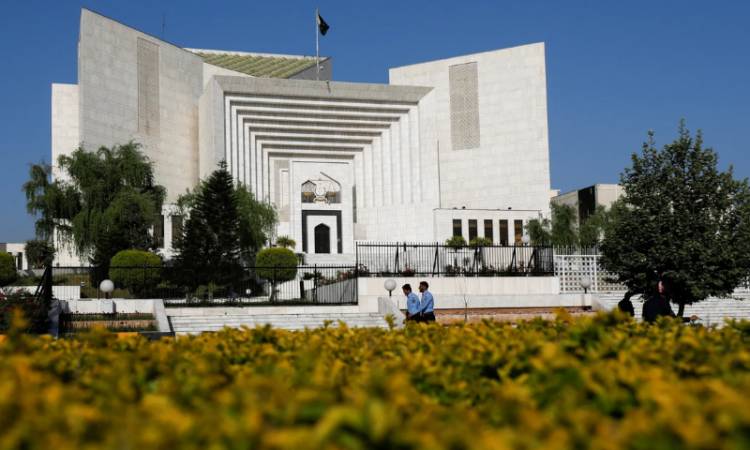Islamabad, January 7, 2025: During a hearing on the constitutionality of civilian trials in military courts, Supreme Court Justice Muhammad Ali Mazhar clarified that civilians would only face military trials if they committed offences specified under the Army Act—not merely for being near an army checkpoint.
Justice Mazhar’s remarks came amid concerns raised by Justice Musarrat Hilali about the potential “extension of powers” to try civilians under military jurisdiction. The hearing focused on appeals challenging the legality of trying civilians in military courts.
Representing the Ministry of Defence, Khawaja Haris argued that the apex court had previously upheld the court-martial of civilians under particular conditions. Justice Mandokhail, however, expressed reservations over whether an executive body, like the Ministry of Defence, could function as both prosecutor and judge. “The constitution explicitly forbids the executive from performing judicial roles,” he noted.
Haris responded that the Army Act encompassed not just military personnel but also civilians in specific situations. Justice Jamal questioned the applicability of Article 8(3)—which pertains to military discipline—wondering whether criminal matters could be addressed under this framework. Haris maintained that armed forces personnel are citizens like any others, entitled to certain rights.
The bench sought clarity on whether extending military jurisdiction to civilians could withstand constitutional scrutiny. Justice Mandokhail further questioned whether enlisting in the armed forces meant surrendering fundamental rights, emphasizing that the Army Act’s primary purpose is to enforce military discipline, not to override civilian protections.
At the end of the hearing, senior journalist Hafeezullah Niazi raised concerns about his son’s treatment following his conviction by a military court. “Despite being transferred to jail, my son is not being treated according to the jail manual,” Niazi said, highlighting that 22 other convicts in Lahore Jail’s high-security zone faced similar conditions.
Justice Musarrat Hilali reminded the court that it had previously directed compliance with the jail manual, criticizing the Punjab and federal governments for “disregarding court orders.” Justice Muhammad Ali Mazhar pointed out that these individuals were already convicted, with sentences ranging from two to ten years, yet the reasons for their convictions had not been disclosed.
The court ordered the Punjab government to submit a report detailing the treatment of prisoners transferred from military courts and to confirm adherence to legal protocols. Justice Ameenuddin, head of the constitutional bench, directed authorities to address Niazi’s complaints promptly.
The hearing was adjourned until Wednesday, with further arguments from the Ministry of Defence scheduled for the next session.








